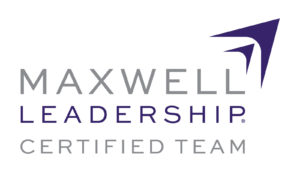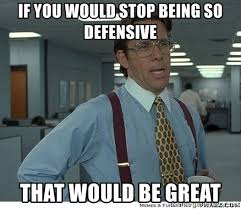
There is a difference between listening and waiting your turn to speak – Simon Sinek
Dana Visneskie tells the story of a Native American and his friend in downtown New York City, walking near Times Square. It was during the noon lunch hour and the streets were filled with people. Cars were honking their horns, taxicabs were squealing around corners, sirens were wailing, and the sounds of the city were almost deafening.
Suddenly, the Native American said, “I hear a cricket.” His friend said, “What? You must be crazy. You couldn’t possibly hear a cricket in all this noise.”
“No, I’m sure of it, the Native American said. “I heard a cricket.” “That’s crazy,” said the friend.
The Native American listened carefully and then walked across the street to the big cement planter where some shrubs were growing. He looked into the bushes, beneath the branches, and sure enough, he located the cricket. His friend was utterly amazed. “That’s incredible,” said his friend. “You must have super-human ears!” “No,” said the Native American. “My ears are no different from yours. It all depends on what you’re listening for.”
It was not surprising to read in a Business News Daily article that in a study, 64% of 675 professional workers in the U.S. and Canada who were polled said that “leaders making decisions without seeking input” was the biggest problem. If that were not bad enough, the article added that 38% of respondents said that “leaders dismissing ideas without exploring those ideas” is the second biggest reason why people don’t take initiative.
And herein lies the problem – the disconnect if you will, between leaders who do not listen and why people are not more engaged in their work. If those in leadership simply do not listen or dismiss ideas out of hand, where is the incentive to be more engaged?
Consistently in any employee engagement survey or reading on the topic, it will almost always identify listening as one of the major concerns on the minds of its respondents – and rightfully so. Until we can get this right, it’s going to be hard to make tangible progress anywhere else.
So how can a leader develop this important skill and increase their influence regardless of where they serve? I believe it comes down to a few key concepts that when put into practice can pay great dividends.
Be proactive
A good leader will always listen to his or her people. But a proactive leader will initiate the conversations. A proactive leader has his finger on the pulse of the organization and will not sit back and wait for people to come to him, but will move toward the people.
A proactive leader is essentially a proactive listener. Click To TweetThis means that the leader is actively engaged with his or her people and sees this engagement as a means to better serve the organization.
Proactive leaders are asking and listening to questions such as: What can we do to improve our product or service? What can we do to improve our culture? What resources do you need? What happens if we don’t change? How can I help you?
By asking proactive questions you keep your pulse on what’s happening, what your people are thinking, and how to best serve them.
Be present
Your ability to listen is predicated by your ability to be present in the moment. This is done by being fully engaged and removing all distractions. By doing this, your people will know that they are important and that you are genuinely interested in what they have to say.
 Leaders who are present in the moment and are actively listening stand to gain a lot of insight that would otherwise be missed. Leaders who are present are asking questions like: Currently, what is your greatest challenge? If you could change one thing, what would it be? As a team, do you believe that we are moving in the right direction? What do I need to know that I don’t? What are your growth goals and how can I help you achieve them?
Leaders who are present in the moment and are actively listening stand to gain a lot of insight that would otherwise be missed. Leaders who are present are asking questions like: Currently, what is your greatest challenge? If you could change one thing, what would it be? As a team, do you believe that we are moving in the right direction? What do I need to know that I don’t? What are your growth goals and how can I help you achieve them?
Be prepared
As a leader, you need to be asking key questions of your people and listening. It’s not something that you do to appease your people and give the impression that you care only to walk away and not act on it. Your people do not need or want your lip service.
Leaders who listen should be prepared to act on what they’ve heard. The only thing worse than not being engaged and listening to your people is to have those conversations and not act on them. Click To Tweet As a leader, you need to be prepared to listen and then act.
Final Thoughts
Bryant H. McGill said, “One of the most sincere forms of respect is actually listening to what another has to say.” And this will always be one of your greatest challenges as a leader. So make it a point to be proactive, be in the moment, and be prepared to act on what you’ve heard. You’ll be the better leader for it and your people will greatly appreciate it.
©2022 Doug Dickerson





 In teachable moments that you have – especially with mentors and those with more knowledge and experience, one sure sign of not being teachable is that you become defensive. And what happens plays out like this: you defend yourself rather than listen; you justify your actions and behaviors rather than correct them, and you put up walls. So long as you are defensive and not teachable, you forfeit the opportunity for a teachable moment and to be a better leader.
In teachable moments that you have – especially with mentors and those with more knowledge and experience, one sure sign of not being teachable is that you become defensive. And what happens plays out like this: you defend yourself rather than listen; you justify your actions and behaviors rather than correct them, and you put up walls. So long as you are defensive and not teachable, you forfeit the opportunity for a teachable moment and to be a better leader.


 important, everything seems equal. We become active and busy but this doesn’t actually move us any closer to success. Activity is often unrelated to productivity, and busyness rarely takes care of business.” And this is such a necessary thing to learn in leadership.
important, everything seems equal. We become active and busy but this doesn’t actually move us any closer to success. Activity is often unrelated to productivity, and busyness rarely takes care of business.” And this is such a necessary thing to learn in leadership.


